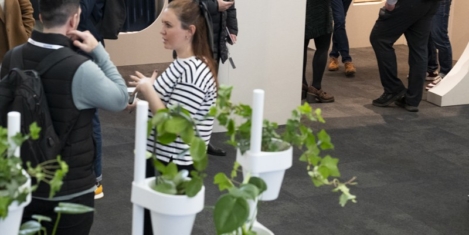To provide the best experiences, we use technologies like cookies to store and/or access device information. Consenting to these technologies will allow us to process data such as browsing behaviour or unique IDs on this site. Not consenting or withdrawing consent, may adversely affect certain features and functions.
The technical storage or access is strictly necessary for the legitimate purpose of enabling the use of a specific service explicitly requested by the subscriber or user, or for the sole purpose of carrying out the transmission of a communication over an electronic communications network.
The technical storage or access is necessary for the legitimate purpose of storing preferences that are not requested by the subscriber or user.
The technical storage or access that is used exclusively for statistical purposes.
The technical storage or access that is used exclusively for anonymous statistical purposes. Without a subpoena, voluntary compliance on the part of your Internet Service Provider, or additional records from a third party, information stored or retrieved for this purpose alone cannot usually be used to identify you.
The technical storage or access is required to create user profiles to send advertising, or to track the user on a website or across several websites for similar marketing purposes.
 Stress now accounts for more than a quarter of short term workplace absence in the UK, according to new research from Simplyhealth and the CIPD. The latest edition of the Health and Wellbeing at Work report, one of the most extensive surveys of its kind, shows that 26 percent of short term absences are attributed to stress. The authors also suggest that almost two thirds of HR professionals reported stress related absence in their organisation during the past year. (more…)
Stress now accounts for more than a quarter of short term workplace absence in the UK, according to new research from Simplyhealth and the CIPD. The latest edition of the Health and Wellbeing at Work report, one of the most extensive surveys of its kind, shows that 26 percent of short term absences are attributed to stress. The authors also suggest that almost two thirds of HR professionals reported stress related absence in their organisation during the past year. (more…)

































October 23, 2025
There’s a simpler, more natural and diverse approach we can take to workplace design
by Peter Fisher • Comment, Workplace design